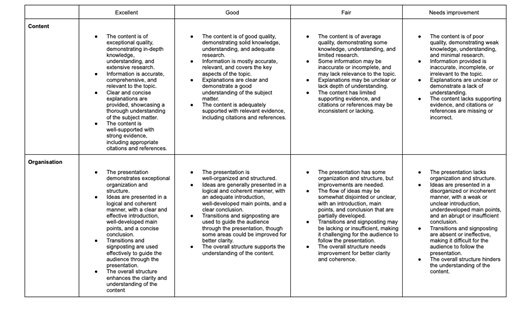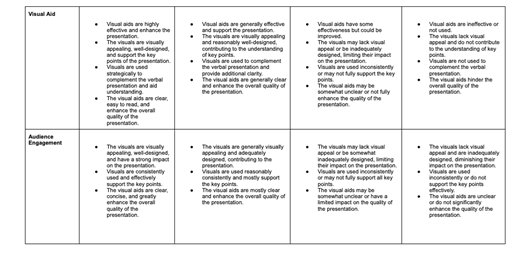Beyond the Game
Course
Course Description
Details and requirements of each week:
Attendees will attend 1 session per week (60 mins)
Attendees will be required to complete (and submit) ongoing weekly assignments
Units Objectives
1. Sports and Life Skills: Building Values, Teamwork, and Results
1.1 Develop a greater understanding of how sport can support the development of personal values, such as respect, perseverance, and sportsmanship, and how these values can be applied to everyday life.
1.2 Enhance teamwork skills through participation in sports activities, including communication, collaboration, and conflict resolution, to support a positive learning environment in the classroom.
1.3 Foster a results-oriented mindset by setting academic and sport-related goals and tracking progress toward achieving those goals.
2. The Power of Sports: Developing Creativity, Skills, and Connections
2.1 Cultivate creativity through exploring innovative approaches to sport training and competition, and through connecting sports with other creative outlets, such as writing, art, or music.
3. Sports and Academics: Exploring Interdisciplinary Learning and Growth
3.1 Understand how sport can support the development of skills in other areas, such as math, science, and languages, and develop strategies for integrating sports and academics in the classroom
3.2 Build self-confidence and self-esteem through achieving success in sport and overcoming challenges, which can translate to greater confidence in academic pursuits.
4. Play to Learn: Using Sports to Enhance Personal and Academic Skills
4.1 Learn to appreciate the importance of fair play, respect, and sportsmanship in competition, and how these values can be applied to social interactions in and outside of the classroom.
4.2 Develop leadership skills through serving as a captain or team leader, organizing events or competitions, and mentoring other students, which can support leadership opportunities in other areas of school life.
5. Connecting Sports to Values, Leadership, and Wellbeing
5.1 Build a sense of community and belonging through participation in sports teams and events, which can promote a positive school culture and encourage social connections.
5.2 Enhance physical fitness, health, and wellness through regular participation in sports and physical activity, which can support overall well-being and academic performance.
Course Delivery
A mixture of Live and Recorded Session
Mode of Delivery: Online
· Content:
· Evaluate the quality and relevance of the content presented. Assess the depth of knowledge, understanding, and research demonstrated. Look for accurate information, clear explanations, and supporting evidence.
· Organization:
· Assess the organization and structure of the presentation. Look for a logical flow of ideas, a clear introduction, well-developed main points, and a concise conclusion. Evaluate the use of transitions and signposting to guide the audience.
· Visual Aids:
· Assess the effectiveness of visual aids used, such as slides, videos, or props. Look for visually appealing and well-designed materials that enhance understanding and support key points. Evaluate the use of visuals to complement the verbal presentation.
· Audience Engagement:
· Evaluate how well the presenter engages with the audience. Look for active interaction, the use of questions, and the ability to maintain audience interest. Assess the presenter's ability to respond to audience questions effectively.
Assessment Rubrics – Presentation


Types of assessments
· Projects
Assessment Criteria
· Project Objectives:
· Evaluate the extent to which the project objectives have been clearly defined and are aligned with the desired outcomes. Assess the clarity, specificity, and relevance of the objectives.
· Quality of Work:
· Assess the quality of work produced as part of the project. Evaluate the accuracy, completeness, and professionalism of deliverables.
· Collaboration and Teamwork:
· Evaluate the level of collaboration and teamwork within the project team. Assess how well team members worked together, communicated, and shared responsibilities. Consider the ability to resolve conflicts and foster a positive team dynamic.
· Problem Solving:
· Evaluate the project team's ability to identify and address problems or challenges that arose during the project. Assess the effectiveness of problem-solving strategies, decision-making, and the ability to overcome obstacles.
Assessment Rubrics – Projects
Facilitator
ALEX LOH

· Moderator
· Chief Executive Officer, Co-Founder of Actxa Wellness
· 10 years with Singapore Ministry of Education as a Physical Education teacher
· Head of Department, Student Leadership
· Represented Singapore in Water Polo at the Asian Games, Commonwealth Games, and winning Gold at the SEA games.
|
Delivery Mode |
Webinar |
|
Course Start Date |
21st September 2023 |
|
Institution |
Marshall Cavendish Education
|
|
Stream |
|
|
Target Audience |
School Leaders, Physical Education Teachers, Head of Department |
|
Language |
English Arabic Translation Available |
Here is the course outline:
Introduction |
Module 1.1 - Sports and Life Skills: Building Values Teamwork and Results
Sep 21
Session 1 |
Module 1.2 - TeamworkSession 2 |
Module 1.3 - Goalsetting
Oct 19 3pm .. 4pm
Session 3 |
Module 2.1 – Cultivating Creativity through Sports
Oct 26 3pm .. 4pm
Session 4 |
Module 3.1 - Understand how sport can support the development of skills
Nov 1 3pm .. 4pm
|
Module 3.2 - Build self-confidence and self-esteem
Nov 8 3pm .. 4pm
|




.png?lmsauth=d844ee3cf5d88d9fe620163250f3a07ac5189902)
.png?lmsauth=997a3a3ee9724721310c93fb8e15d98973c98a7b)
.jpg?lmsauth=0e02aa1e7071f4729b61945c73449025bdf9e3d7)